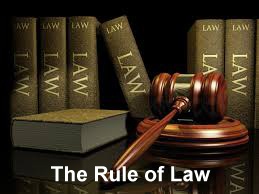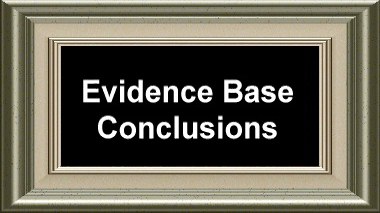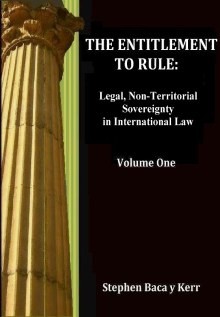The International Commission on Nobility and Royalty | home
The Claim of Sovereignty of the Self-Styled Abbey-Principality of San Luigi
The Claim of Sovereignty of the Self-Styled Abbey-Principality of San Luigi
This article is reluctantly offered. It is not our practice, or policy, to publish exposés of false claims. We would not make this article public if this group did not set up a derogatory web page focused on us. We sent this article privately to our members several years ago; and, as a duty for which we were commission. That is we sent it to a royal house that we legally obligated to. It was never made public or published openly. However, as they have published two or three uncomplimentary articles on us to give a fair and balance report, we thought it best to react in this manner.
However, we have determined, and given our word, to take this article down provided they permanently remove their articles from the worldwide web. We take our promises seriously.
As to this, and all other articles, the truth is the only standard we will use and live by. Our motto is "Based on Solid Evidence," which is our continued practice as a public service, and this principle will always be maintained to the best of our ability. The following article demonstrates that their claim to sovereignty, and therefore to be a government-in-exile, or to be a true fons honorum, contradicts the very law that determines whether sovereignty exists or not. Judge for yourself.
Short Research Report on the Abbey-
This religious organization claims they achieved the full right of sovereignty over a few acres or less on the continent of Africa for a period of about one year ending in 1844 after which they were forced to depart. (See: http://san-luigi.org/history/the-abbey-principality-in-international-law)
 The major problem, with this erroneous claim, is that it is in direct violation of international law, because it was on someone else’s lawful sovereign territory. This, in and of itself, makes their claim illegal and therefore false.
The major problem, with this erroneous claim, is that it is in direct violation of international law, because it was on someone else’s lawful sovereign territory. This, in and of itself, makes their claim illegal and therefore false.
The idea of holding sovereignty within another nation’s territory is irrational and contrary to the laws that govern sovereignty. This is illustrated in the following scenario. That is:
If the Catholic Church could set up tiny little abbeys and monasteries all over the earth and then declare them to be independent sovereignties (independent nations), which is basically their claim, we could conceivably have, instead of about 150+ nations, we could have more than 50,000 little countries all over the earth and dismember nations left and right. Carrying this irresponsible and irrational theory even further, the Orthodox Church and others could do the same thing and set up nation-states within the sovereign abbeys created by the Catholic Church on the very same principle. In a situation like this, sovereignty would mean little or nothing, and independence from the meddling of others would be a meaningless ideal. Such a theory actually would eliminate sovereignty and supremacy altogether. It would throw out all international sovereignty law. In other words, the idea behind their claim is without any validity or wholesome benefit to the nations of the earth, who are organized under the rule of sovereign independence as a central, fundamental feature of the rule of law. The point is:
 No rule is clearer than the precept that no State [or other sovereign entity] may lawfully attempt to exercise [or hold valid] sovereignty within the territory of another.[1]
No rule is clearer than the precept that no State [or other sovereign entity] may lawfully attempt to exercise [or hold valid] sovereignty within the territory of another.[1]
Sovereignty is the exclusive right to exercise supreme political authority over a defined territory (land, airspace and certain maritime areas such as the territorial sea) and the people within that territory.
No other State [or other entity like an abbey] can have formal political authority [sovereignty] within that State [or kingdom].[2] (emphasis added)
This core or fundamental doctrine of sovereign independence is enshrined in the UN Charter. It is so important that it is reiterated again:
. . . [N]o state or group of states has the right to intervene in any form, or for any reason whatever, directly or indirectly, in the internal or external affairs of any [other] state."[3]
 Only by the actual crime of usurpation, occupation or conquest could they exercise true sovereignty authority on someone else’s land. However, legally, the only way a usurper or conquistador can gain lawful or true sovereignty over another's territory is after 50 to 100 years of uncontested, undisputed, public exercise of such. However, their claim was only for about one year. (See article "Deposed Sovereignty and Royalty: How to Preserve it and How it can be Lost") This is absolute proof that they never gained any kind of real sovereignty. It could not be otherwise according to international and prescriptive law.
Only by the actual crime of usurpation, occupation or conquest could they exercise true sovereignty authority on someone else’s land. However, legally, the only way a usurper or conquistador can gain lawful or true sovereignty over another's territory is after 50 to 100 years of uncontested, undisputed, public exercise of such. However, their claim was only for about one year. (See article "Deposed Sovereignty and Royalty: How to Preserve it and How it can be Lost") This is absolute proof that they never gained any kind of real sovereignty. It could not be otherwise according to international and prescriptive law.
If they did exercise authentic sovereignty in this populated desert land over their tiny little property, it was in violation of the sovereignty of the rulers and people of the land. It was in full breach of the highest secular law on earth. Such a claim as the San Luigi makes is not legal. It "gives them no right whatsoever."[3] You can’t disobey the only laws on earth that can create valid sovereignty and somehow magically "presto-chango" obtain it in an unauthorized way. Sovereignty, the highest secular right on earth, can only be achieved by obeying the laws that govern its birth and creation. Therefore, no person, no organization, no religious order or abbey, not even another sovereign nation, can lawfully assume any kind of sovereign jurisdiction or rights in another country's territory without permission. This would be in direct defiance of ancient and modern international law.
The unfounded claim of this religious order, according to their own writings, was based on discovery of uninhabited land, or land inhabited by a nomadic people. One of the major problems with this is:
. . . that territories inhabited by nomadic peoples living as ‘organized societies’ were not to be considered terra nullius [uninhabited] open to acquisition by occupation.[4]
The land which they claimed was already occupied for thousands of years by an ancient kingdom with a long history and succession of rulers and kings, who ultimately became free from the domination of two prior Empires: the Roman and the Byzantine Roman. The point is, the land of the Fezzan was not terra nullius or empty of people. Grotius, one of the chief fathers of international law, rejected the idea justifying conqurering a country for their own good. He wrote:
Equally shameless is it to claim for oneself by right of discovery what is held by another. . . . For discovery applies to those things which belong to no one.[5]
The Tuareg land, they claimed to be uninhabited, had seven major confederations of people. Each ruled over by a supreme Chief called "Amenokal" who governed with a council of elders from each tribe. There were actually more people subsisting in this land under their own sovereign indigenous governments than there are now in modern times, because of powerful trade routes and gold, which operated abundantly back then.
 The International Court of Justice declared in 1976 that, “. . . The peoples of Western Sahara at the time of its colonization [1884] gave rise to certain ties of a legal character. . . .” They “. . . had grazing pastures, cultivated lands, and wells or water-holes . . . burial grounds . . . regulated by customs.” In other words, they were organized societies. Therefore, the Court concluded that the “. . . nomadic peoples living as 'organized societies' were not to be considered terra nullius [that is, vacant and] open to acquisition by occupation.”[6] (emphasis added) The Court was commissioned by the United Nations to see if any colonial government had any rightful claims over the people of Western Sahara, which would of course include the Abbey's phony claim. No one, but the countries existing there had sovereignty. The Abbey's claim is obviously false according to the International Court of Justice's findings to the UN.
The International Court of Justice declared in 1976 that, “. . . The peoples of Western Sahara at the time of its colonization [1884] gave rise to certain ties of a legal character. . . .” They “. . . had grazing pastures, cultivated lands, and wells or water-holes . . . burial grounds . . . regulated by customs.” In other words, they were organized societies. Therefore, the Court concluded that the “. . . nomadic peoples living as 'organized societies' were not to be considered terra nullius [that is, vacant and] open to acquisition by occupation.”[6] (emphasis added) The Court was commissioned by the United Nations to see if any colonial government had any rightful claims over the people of Western Sahara, which would of course include the Abbey's phony claim. No one, but the countries existing there had sovereignty. The Abbey's claim is obviously false according to the International Court of Justice's findings to the UN.
Back then: this loosely federated kingdom possessed the land having over 35 towns and 100 villages and were supreme in the use of their own laws and judgments. The government was monarchial; but its power was administered with such regard to the happiness of the people, the rights of property so revered, the taxes so moderate, and justice, directed by such a firm, yet temperate hand that the people are ardently attaché to their sovereign.[7]
 Having sovereignty, no one could come into their land like a foreign Catholic Abbey in Moslem territory and establish a new little country in their midst without their permission. This would be a violation or breach of their territorial integrity – a fundamental rule of international law. The point: The Abbey was nothing more than an Abbey, which only lasted less than one year before they were entirely removed by the people of the land who had rejected them.
Having sovereignty, no one could come into their land like a foreign Catholic Abbey in Moslem territory and establish a new little country in their midst without their permission. This would be a violation or breach of their territorial integrity – a fundamental rule of international law. The point: The Abbey was nothing more than an Abbey, which only lasted less than one year before they were entirely removed by the people of the land who had rejected them.
One of the major reasons this Catholic religious order took residence in this place was because this land was occupied, not because it was empty of inhabitants or what is called in international law -- terra nullius. If there was not much potential for people to be converted to Christianity, it would never have been founded in this area. The idea that this land was terra nullius or empty of an organized people was historically inaccurate. This fact alone invalidates their claim – a claim that is historically unsupportable or fundamentally wrong.
They claim that the Catholic Church recognized them as sovereign, but admit that no proof exists to substantiate this. But even if this happened, it is immaterial. Recognition does not create sovereignty.
. . . Sovereignty is neither created by recognition nor destroyed by nonrecognition.[8]
Recognition simply cannot make something false into something true. Neither the Catholic Church, nor any sovereign entity, has the legal right to create internal sovereignty over someone else’s land. No one can legally do this. In addition, in international law, if there is no solid proof that something occurred, as in this situation, something they admit, it becomes nothing more than pie in the sky or a nice sounding fairy tale. Because there are no public documents, no historical record, no actual proof or living witnesses -- nothing to stand up legally before a court of law establishing their claim. It must always be remembered that claims are not facts, unless they can be proven without the use of assumption stacking, conjecture or inadmissible historical assertions.
In addition, in the 19th century, the Catholic hierarchy still used the word "sovereignty" very loosely. For example, fathers of families were "sovereign," when sovereignty, by definition, legally pertained only to the supreme secular authority of a State or nation, not to a common, ordinary papa, a general, a governor, bishop or abbott. It is a well-known fact that there is only one person who holds true sovereignty in the hierarchy of the Catholic Church, and it is not because he is the head of the Church, but because the Pope is the secular ruler of the a small, but separate, independent sovereign entity called the Vatican City.
It is true that there was such a religious order (probably an abbey) there in Africa at the time specified, but this does not magically transform them, or anyone else, into a supreme free and independant nation, or principality, especially without the support, or in direct violation of the only laws on earth that can legally produce the rights of sovereignty -- the de jure supreme right to rule.

The obvious conclusion is that their claim of sovereign supremacy, or having a valid jus honorum, is completely and totally false under international law. And no sovereignty means no right to give out public titles. Their titles and knighthoods are, therefore nothing more than receiving such honors from a basket weaving club or social organization. In other words, their honors and distinctions are private, not public secular rights under sovereignty law, and therefore should not be used publicly lest they mislead others into thinking they are something that they are not. They are invalid and worthless compared to an authentic and genuine knighthood or title given out by a true, legitimate, and living king or sovereign prince, not a dead one. (See the chapter on "Sovereignty and Orders of Chivalry" on the web page on "Orders of Chivalry")
Honesty and truth about this and all things, which should characterize an Abbey, should be their highest and most cherished priority. But unfortunately, integrity is not important to them.
 No wonder they are not acknowledged as valid by the International Commission on Orders of Chivalry (ICOC) or any other reputable organization that accredits the validity or rightfulness of claims. In fact, the Abbey's ". . . Order of the Crown of Thorns (OCT) and the Order of the Lion and the Black Cross (OLBC) . . . are condemned by the Holy See and Italy lists [them] as illegal decorations."[9] (emphasis added) Not only is there a lack of verifiable facts about the monastery and its origins, but most damning of all is the fact that, "In 1957, Girardot [one of the founders of this organization] recanted his 1883 foundation story."[10] (emphasis added) He admitted to falsification. This puts everything they say into serious doubt. But the fact that their claim to sovereignty is absurd or contrary to the laws that govern the possession sovereignty should be enough for any reasonable person. To say the least, this organization is not what it claims to be! (See "The Wacky Word of the So-Called Abbey-Principality of San Luigi: It is called hypocrisy")
No wonder they are not acknowledged as valid by the International Commission on Orders of Chivalry (ICOC) or any other reputable organization that accredits the validity or rightfulness of claims. In fact, the Abbey's ". . . Order of the Crown of Thorns (OCT) and the Order of the Lion and the Black Cross (OLBC) . . . are condemned by the Holy See and Italy lists [them] as illegal decorations."[9] (emphasis added) Not only is there a lack of verifiable facts about the monastery and its origins, but most damning of all is the fact that, "In 1957, Girardot [one of the founders of this organization] recanted his 1883 foundation story."[10] (emphasis added) He admitted to falsification. This puts everything they say into serious doubt. But the fact that their claim to sovereignty is absurd or contrary to the laws that govern the possession sovereignty should be enough for any reasonable person. To say the least, this organization is not what it claims to be! (See "The Wacky Word of the So-Called Abbey-Principality of San Luigi: It is called hypocrisy") 
____________________________
[1] R. Y. Jennings, The Acquisition of Territory in International Law, 1963, p. 2.
[2] Robert Beckman and Dagmar Butte, Introduction to International Law, p. 2; 2013: http://www.ilsa.org/jessup/intlawintro.pdf.
[3] Michael J. Glennon, Limits of Law, Prerogatives of Power: Interventionism After Kosovo, 2001, pp. 17-35.
[4] Emerich de Vattel, The Law of Nations, Book 3, chapter 11, no. 183.
[5] Hugo Grotius, On the Law of War and Peace, Book 2, chapter 22, no. 9, F. W. Kelsey trans., 1913, p. 550.
[6] Stephen C. McCaffrey, Dinah Shelton and John Cerone, Public International Law: Cases, Problems, and Texts, 2010, no. 4.2.1.
[7] Richard Brookes, Brookes' General Gazetter abridged: Containing a Geographical Description of the Contries, Cities, Towns, Forts, Seas, Rivers, Lakes, Mountains, Capes, &c. in the Known World, “Fezzan,” 1796.
[8] The New Encyclopaedia Britannica, edition 15, part 3, vol 17, 1981, p. 312.
[10] Girardot, Louis-François (2012-07-22). Thériault, Serge A, ed. Statement by Louis-François Girardot regarding the Abbey-Principality of San Luigi and its Order of the Crown of Thorns, Said of the Lion and Black Cross made on August 14 and 11 October 1957. Translated by the editor. Ottawa: Christian Catholic Church of Canada. Archived from the original on 2013-04-20. Retrieved 2013-04-20; and Intermédiaire des Chercheurs et Curieux (in French) (Paris) 21. Sep 1971. ISSN 0020-5613
_____________________________
All the major legal principles and concepts that promote genuine and true nobility, royalty and chivalry are contained in the following new book. Note what is says in the first paragraph of the Foreword:
The whole field of nobility and royalty is in disarray and confusion. It is rife with falsehoods, misguided experts, phony princes, and counterfeit chivalric orders. Besides the numerous scams and charlatans that exist, there is a widespread misunderstanding of the international and natural laws that govern dynastic rights. This is a field that is truly divided. This sad state of affairs need not continue. If international law is honored, revered and respected, then everything can be set in its proper order. The grand key to this needed unity is the rule of the just, time-honored laws that already exist.
The author is Dr. Stephen Baca y Kerr, JD, LLM, MAT, former special counsel to the Imperial and Royal House of Habsburg, former Professor and Dean of the Law School at the American School of Interdisciplinary Studies. His book is The Entitlement to Rule: Legal, Non-Territorial Sovereignty in International Law and it is a masterpiece. Note excerpts of what people have said about both volumes:
"It is magnificently done and of great worth." (Adalberto J. Urbina Briceno, Sc.D., Professor Head of the Public International Law Chair of the Catholic University Andres Bello- Caracas)
"It is a goldmine of references and is a valuable account of a [thought provoking] . . . and poorly understood area of law." (Rev'd Professor Noel Cox, LLM, MA, MTheol, Ph.D., LTh, FRHists, Barrister, Aberystwyth University, New Zealand)
"Dr. Kerr has put together a book that is a "one of a kind" providing what is needed to perpetuate the rights of deposed sovereignty. For all those interested in the legal future of nobility and royalty, this is a very important, scholarly and insightful book to read." (LaWanna Blount, Ph.D., F.Coll.T, vice president and professor at the American College of Interdisciplinary Sciences, Como, Mississippi, USA)
"It is written in a clear and compelling manner. It is hoped that more and more people will become familiar with the laws of justice contained in this book." (Thubten Samphel, director of the Tibet Policy Institute of the Central Tibetan Administration and author of the book Falling Through the Roof, Dharamshala, India)
"Dr. Kerr's book . . . is one of those . . . path breaking works that throws new light on a field of study . . . on the complex legal and philosophical sinews that keep alive [deposed] monarchies. . . . This type of writing fills a huge gap within the royal studies field. . . ." (Dr. Diana Mandache, historian and author, Budapest, Romania)
"The author obviously has a deep understanding of international law and how it relates to deposed monarchies and exiled governments. The content is well structured and well written. I accept this book as conforming to the highest academic standards expected of a master scholar and practitioner." (Alexander Arapov, Sc.D., Professor of the Department of Philosophy and Sociology of the All-Russian State Distance-Learning Institute of Finance and Economics, a branch of the Financial University of the Russian Federation)
"This has been the most interesting and helpful book I have read in the field of nobiliary law as well as international law . . . . It exemplifies the highest level of scholarly content, clarity and depth of inquiry yet presented on this profound and important subject." (Prof. Dr. Mirjana Radovic-Markovic, Academician, Institute of Economic Sciences and Faculty of Business Economics and Entrepreneurship, Belgrade, Serbia)
The first volume of 370 pages can be obtained as an ebook for a donation of $10.00 to the International Commission on Nobility and Royalty. You will need to have an Adobe Reader to enjoy it. The ebook will shortly be available on Amazon, etc., but can be obtained now for $10.00 instead of a higher price later on. The second volume is due to come forth later this year.
For "Contact" information or to join the Commission as a contributor or apply for certification for titles, knighthood, status or ancestry, please first read the "Disclaimer and Obligatory Contract." If you fully agree with them, you are welcome to contact us, make contributions, answer our survey and/or become a part of this important cause. Our goals and mission are to protect the public from counterfeit titles, phony knighthoods and fake genealogies. We also want to certify the true and the genuine as well as promote chivalry, royalty and nobility. We need your support. There is so much that needs to be done. We invite you to contribute and join with us.
Contact or donate through the following:
© Copyright 2005/2009 -- International Commission on Nobility and Royalty. All Rights Reserved.

 The major problem, with this erroneous claim, is that it is in direct violation of international law, because it was on someone else’s lawful sovereign territory. This, in and of itself, makes their claim illegal and therefore false.
The major problem, with this erroneous claim, is that it is in direct violation of international law, because it was on someone else’s lawful sovereign territory. This, in and of itself, makes their claim illegal and therefore false.  No rule is clearer than the precept that no State [or other sovereign entity] may lawfully attempt to exercise [or hold valid] sovereignty within the territory of another.[1]
No rule is clearer than the precept that no State [or other sovereign entity] may lawfully attempt to exercise [or hold valid] sovereignty within the territory of another.[1]  Only by the actual crime of usurpation, occupation or conquest could they exercise true sovereignty authority on someone else’s land. However, legally, the only way a usurper or conquistador can gain lawful or true sovereignty over another's territory is after 50 to 100 years of uncontested, undisputed, public exercise of such. However, their claim was only for about one year. (See article "Deposed Sovereignty and Royalty: How to Preserve it and How it can be Lost") This is absolute proof that they never gained any kind of real sovereignty. It could not be otherwise according to international and prescriptive law.
Only by the actual crime of usurpation, occupation or conquest could they exercise true sovereignty authority on someone else’s land. However, legally, the only way a usurper or conquistador can gain lawful or true sovereignty over another's territory is after 50 to 100 years of uncontested, undisputed, public exercise of such. However, their claim was only for about one year. (See article "Deposed Sovereignty and Royalty: How to Preserve it and How it can be Lost") This is absolute proof that they never gained any kind of real sovereignty. It could not be otherwise according to international and prescriptive law. The International Court of Justice declared in 1976 that, “. . . The peoples of Western Sahara at the time of its colonization [1884] gave rise to certain ties of a legal character. . . .” They “. . . had grazing pastures, cultivated lands, and wells or water-holes . . . burial grounds . . . regulated by customs.” In other words, they were organized societies. Therefore, the Court concluded that the “. . . nomadic peoples living as 'organized societies' were not to be considered terra nullius [that is, vacant and] open to acquisition by occupation.”[6] (emphasis added) The Court was commissioned by the United Nations to see if any colonial government had any rightful claims over the people of Western Sahara, which would of course include the Abbey's phony claim. No one, but the countries existing there had sovereignty. The Abbey's claim is obviously false according to the International Court of Justice's findings to the UN.
The International Court of Justice declared in 1976 that, “. . . The peoples of Western Sahara at the time of its colonization [1884] gave rise to certain ties of a legal character. . . .” They “. . . had grazing pastures, cultivated lands, and wells or water-holes . . . burial grounds . . . regulated by customs.” In other words, they were organized societies. Therefore, the Court concluded that the “. . . nomadic peoples living as 'organized societies' were not to be considered terra nullius [that is, vacant and] open to acquisition by occupation.”[6] (emphasis added) The Court was commissioned by the United Nations to see if any colonial government had any rightful claims over the people of Western Sahara, which would of course include the Abbey's phony claim. No one, but the countries existing there had sovereignty. The Abbey's claim is obviously false according to the International Court of Justice's findings to the UN.  Having sovereignty, no one could come into their land like a foreign Catholic Abbey in Moslem territory and establish a new little country in their midst without their permission. This would be a violation or breach of their territorial integrity – a fundamental rule of international law. The point: The Abbey was nothing more than an Abbey, which only lasted less than one year before they were entirely removed by the people of the land who had rejected them.
Having sovereignty, no one could come into their land like a foreign Catholic Abbey in Moslem territory and establish a new little country in their midst without their permission. This would be a violation or breach of their territorial integrity – a fundamental rule of international law. The point: The Abbey was nothing more than an Abbey, which only lasted less than one year before they were entirely removed by the people of the land who had rejected them. 
 No wonder they are not acknowledged as valid by the International Commission on Orders of Chivalry (ICOC) or any other reputable organization that accredits the validity or rightfulness of claims. In fact, the Abbey's ". . . Order of the Crown of Thorns (OCT) and the Order of the Lion and the Black Cross (OLBC) . . . are condemned by the Holy See and Italy lists [them] as illegal decorations."[9] (emphasis added) Not only is there a lack of verifiable facts about the monastery and its origins, but most damning of all is the fact that, "In 1957, Girardot [one of the founders of this organization] recanted his 1883 foundation story."[10] (emphasis added) He admitted to falsification. This puts everything they say into serious doubt. But the fact that their claim to sovereignty is absurd or contrary to the laws that govern the possession sovereignty should be enough for any reasonable person. To say the least, this organization is not what it claims to be! (See "The Wacky Word of the So-Called Abbey-Principality of San Luigi: It is called hypocrisy")
No wonder they are not acknowledged as valid by the International Commission on Orders of Chivalry (ICOC) or any other reputable organization that accredits the validity or rightfulness of claims. In fact, the Abbey's ". . . Order of the Crown of Thorns (OCT) and the Order of the Lion and the Black Cross (OLBC) . . . are condemned by the Holy See and Italy lists [them] as illegal decorations."[9] (emphasis added) Not only is there a lack of verifiable facts about the monastery and its origins, but most damning of all is the fact that, "In 1957, Girardot [one of the founders of this organization] recanted his 1883 foundation story."[10] (emphasis added) He admitted to falsification. This puts everything they say into serious doubt. But the fact that their claim to sovereignty is absurd or contrary to the laws that govern the possession sovereignty should be enough for any reasonable person. To say the least, this organization is not what it claims to be! (See "The Wacky Word of the So-Called Abbey-Principality of San Luigi: It is called hypocrisy") 



 For Membership or to become Certified, please read "Membership Categories, Fees, Evidence Requirements & Standards."
For Membership or to become Certified, please read "Membership Categories, Fees, Evidence Requirements & Standards."